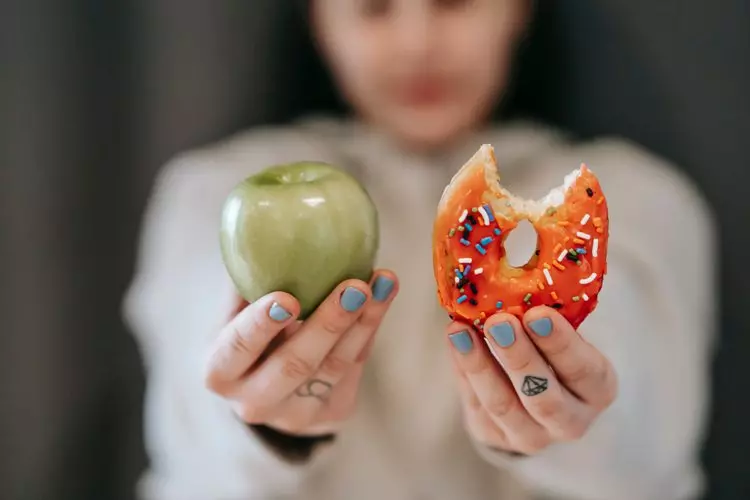
Photo Credit: by Andres Ayrton, Pexels.com
More and more evidence is emerging that gut health plays a key role in our overall health with many now saying it’s our second brain. This is because the Gut-Brain axis is vital for both our mental health and our cognitive function. Our gut is in constant communication with our brain and some studies are even starting to link our personalities to our gut, more specifically, what we feed our gut.
Our gut houses trillions of organisms which have a symbiotic relationship with our brain. The foods we eat provide us with the building blocks of important neurotransmitters that help our brain function and to a certain degree help to shape our personality.
For example, acetylcholine is a neurotransmitter that helps with muscle contractions but is also responsible for the speed of which neurons in the brain communicate. We all make acetylcholine but some people might make more of it than others. People who make more of this neurotransmitter tend to be creative thinkers and can perform tasks quickly. Because the choline molecule is a fat molecule, people who make more acetylcholine may gravitate towards eating foods rich in fat.
Maybe you're someone who has a lot of energy and is a strategic thinker. This may indicate that your body makes more dopamine than others. Dopamine is our excitatory neurotransmitter and is what helps us to focus and complete tasks. Dopamine is made in both our gut and our brain, but if we aren't making enough, we could start craving sweet foods including chocolate. Why? The precursor substance to make dopamine is called tyrosine. Chocolate, especially dark chocolate contains tyramine which is converted to tyrosine.
The neurotransmitter serotonin is our mood stabilizer. People who are serotonin dominant tend to be free spirited and adventurous. A large portion of serotonin is made in our gut. If we become deficient in this neurotransmitter, AKA our body isn't making enough of it, it can affect our mood and cause difficulties in falling asleep. What many people don’t realize is that in order for our body to make serotonin, we need to have enough of an amino acid precursor called tryptophan. Tryptophan cannot be made by our bodies and must be obtained from a food source. Foods such as walnuts, pineapples and bananas are rich in tryptophan.
Those of us who are dependable, stable and have a calming presence might make more of the neurotransmitter GABA. According to Psychiatrist, Dr. Braverman, GABA individuals make up approximately 50% of the population. GABA deficiencies for example may present as anxiety or early morning awakenings. Using Personality and Temperament to Predict Exercise Behavior: A Pilot Study of the Braverman Nature Assessment
What about those of us who are deficient in acetylcholine? Our body wants to replenish what it’s missing, so it will do what it can to seek these precursor sources. If you’re craving something fried or rich in fat, your body may need to make more acetylcholine. Instead of reaching for that piece of fried chicken, try a food that is rich in healthy omega 3 fats such as wild salmon, walnuts or avocados.
As I often tell my weight loss patients, your body craves nutrients, not food. Many times you crave certain foods or have an increased appetite because of this. Once we replenish what our body needs, cravings tend to disappear.
So the next time you reach for that sweet cookie, or greasy hamburger, think about what your gut is trying to tell your brain.
Want to improve your brain health? Taking an omega 3 fatty acid such as
https://www.canadapharmacyonline.com/DrugInfo.aspx?name=Cod+Liver+Oil7142
daily has been shown to improve cognitive function
Having difficulty getting a good night sleep? Try melatonin, a natural way to induce a good night’s sleep.
https://www.canadapharmacyonline.com/DrugInfo.aspx?name=Melatonin6487
Please consult with your doctor before taking any medications or supplements.
References:
Nutritional psychiatry: Your brain on food - Harvard Health
Food & Your Mood: How Food Affects Mental Health - Aetna | Foods That Help Your Brain Health
Your email address will not be published. Required fields are marked with *.